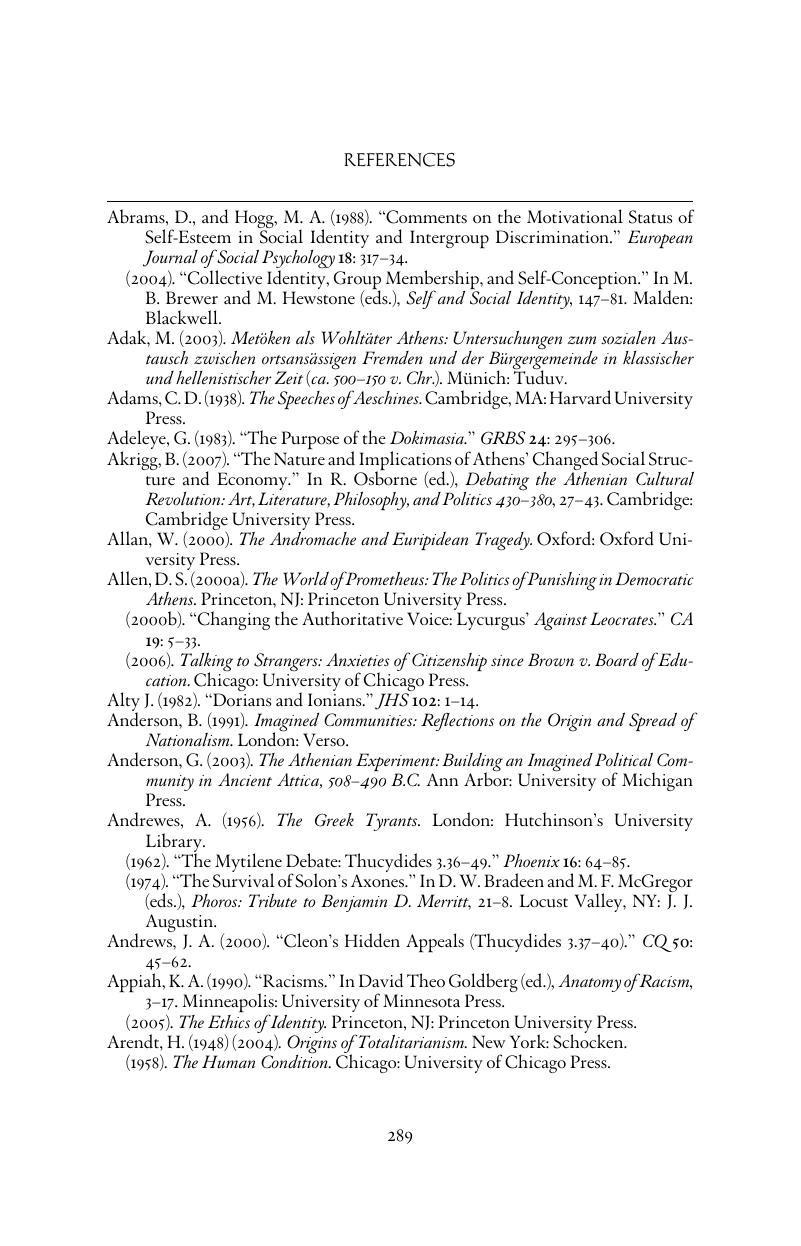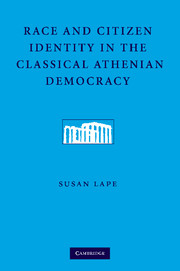Book contents
- Frontmatter
- Contents
- Preface
- Acknowledgments
- RACE AND CITIZEN IDENTITY IN THE CLASSICAL ATHENIAN DEMOCRACY
- 1 Theorizing Citizen Identity
- 2 The Rhetoric of Racial Citizenship
- 3 Euripides' “Ion” and the Family Romance of Athenian Racialism
- 4 Athenian Identity in History and as History
- 5 Trials of Citizen Identity: Policing and Producing the Racial Frontier
- 6 Myths and Realities of Racial Citizenship
- Abbreviations
- References
- Index of Names and Subjects
- Index of Passages Discussed
- References
References
Published online by Cambridge University Press: 05 May 2010
- Frontmatter
- Contents
- Preface
- Acknowledgments
- RACE AND CITIZEN IDENTITY IN THE CLASSICAL ATHENIAN DEMOCRACY
- 1 Theorizing Citizen Identity
- 2 The Rhetoric of Racial Citizenship
- 3 Euripides' “Ion” and the Family Romance of Athenian Racialism
- 4 Athenian Identity in History and as History
- 5 Trials of Citizen Identity: Policing and Producing the Racial Frontier
- 6 Myths and Realities of Racial Citizenship
- Abbreviations
- References
- Index of Names and Subjects
- Index of Passages Discussed
- References
Summary

- Type
- Chapter
- Information
- Race and Citizen Identity in the Classical Athenian Democracy , pp. 289 - 330Publisher: Cambridge University PressPrint publication year: 2010



